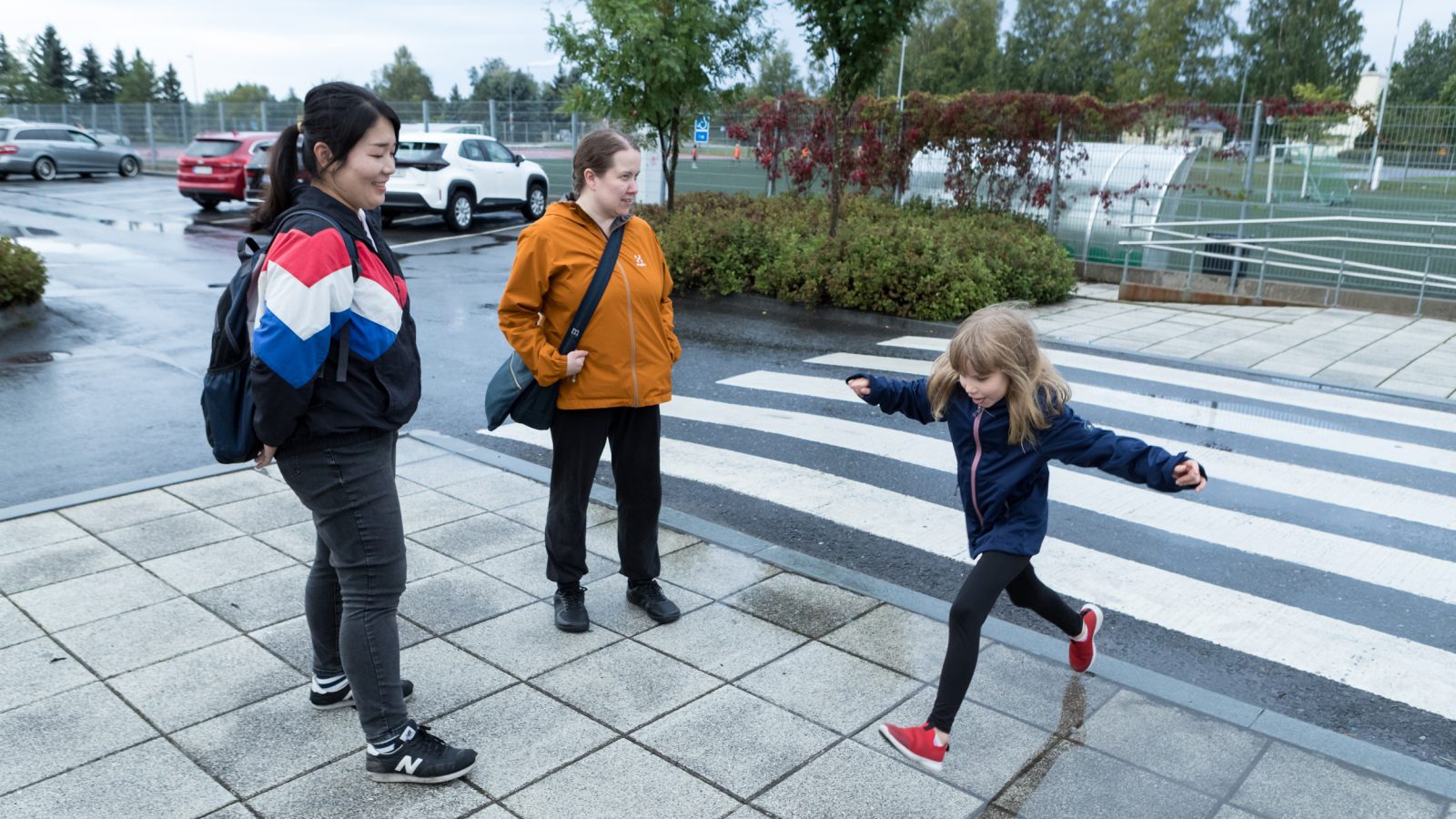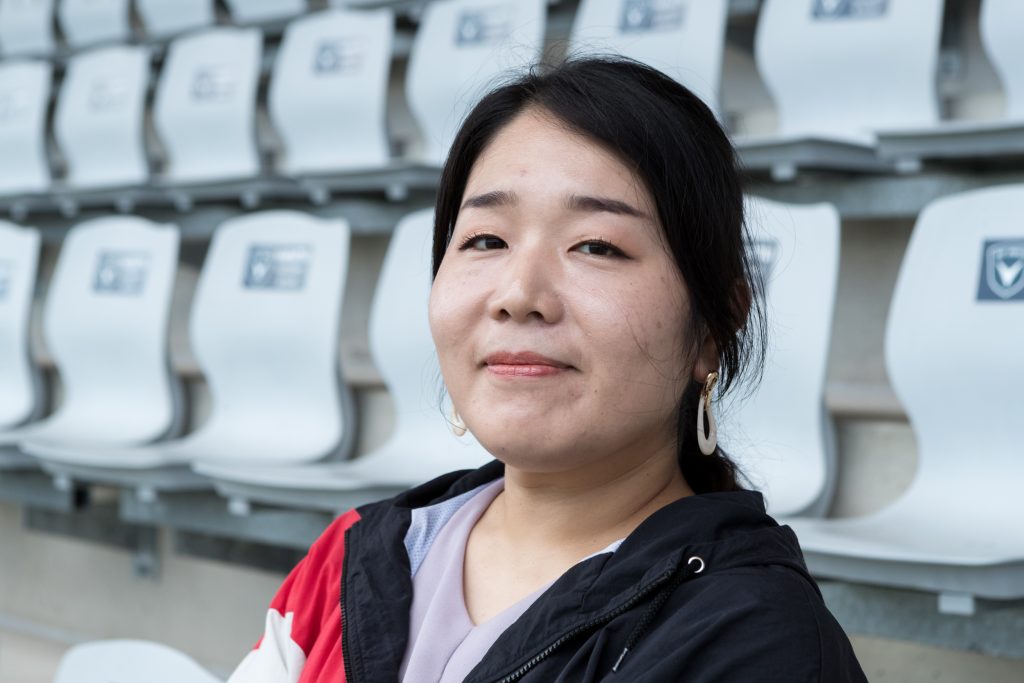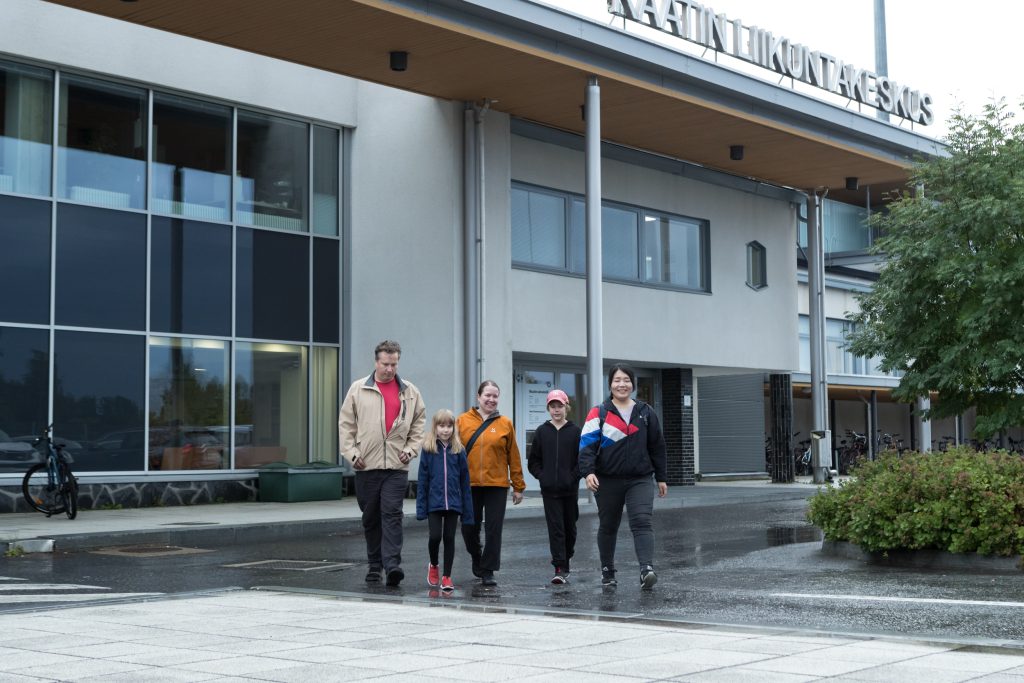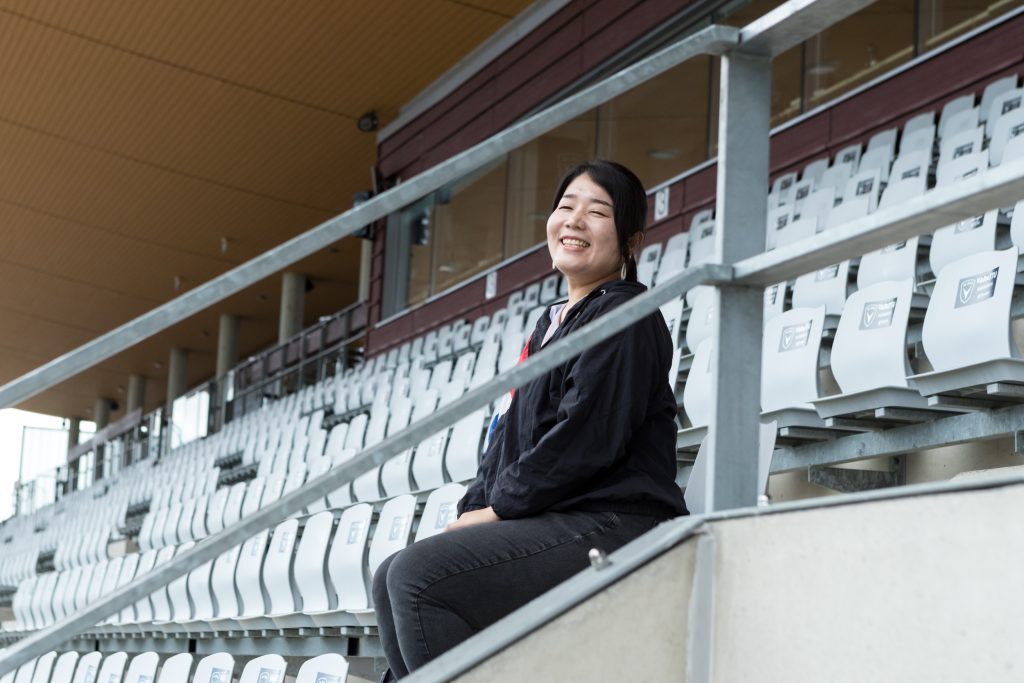My Oulu: A Kummi Family is a great way to get immersed in life in Finland

Fumika Mochiyama (left) enjoys spending time with the Moilanens and likes the company of their children. Silja Moilanen shows Fumika and her mom Sanni how to jump over a puddle. Photos: Janne-Pekka Manninen
For almost 30 years, the University of Oulu has run a programme that is designed to bring international students together with local families. The Kummi Family Programme is a way to get acquainted with another culture and familiarise students with ordinary life in Finland. And, most importantly, it is a chance to make life-long friendships.
Fumika Mochiyama enrolled in the Learning, Education and Technology Master’s Programme at the University of Oulu and began her studies in the fall of 2023. Back home in Japan, Mochiyama has been teaching in elementary school for 11 years.
“I am very interested in education and the Finnish education system has a very good reputation. I had visited Finland once before when I went to Helsinki with my friends, and I really liked the country. I wanted to also experience Finnish culture and learn the language in addition to my studies in the programme,” Mochiyama says.

Fumika Mochiyama is enrolled in a two-year Master’s programme at the University of Oulu. “The Kummi Family programme is a way for me to get to know Finnish society,” Mochiyama says.
After Mochiyama arrived in Oulu and had spent a couple of months settling in, she learned about the Kummi Family Programme. Families and students apply to be in the programme, and the idea is to help give both parties a new positive experience and encourage cultural exchange. In practice, the students and the families are free to do whatever they want: maybe cook together, go skiing together, walk the family dog or just simply spend time together.
Mochiyama decided to apply and soon she was paired with a family from Oulu, the Moilanens. They made quick friends.
“They were really helpful with things like going to the grocery store and finding the things I needed. We have spent quite a lot of time together and it is always very relaxing and enjoyable to me,” Mochiyama says.
Second-generation Kummi Family
Sanni and Janne Moilanen and their two children, Juuso and Silja, are practically veterans in the Kummi Family Programme. Especially Sanni, whose parents decided to become a Kummi Family in the 1990’s around the time when the programme originally started, making her a second-generation Kummi.
“I had wonderful experiences back then and I wanted to take this opportunity with my own family when the time came. We had our first Kummi student when Juuso was a baby and he’s now 11 years old. The pandemic stopped the programme for a few years, and so Fumika is now our fourth Kummi student,” Sanni Moilanen says.

Janne, Silja, Sanni and Juuso Moilanen with their Kummi student Fumika Mochiyama outside the Raatti swimming hall. They often go swimming in the many swimming halls of Oulu.
The Moilanen family spend time with Mochiyama once or twice a month. They do regular family things: hang out on the weekends, cook lohikeitto (salmon soup) or jauhelihakastike (minced meat stew), go swimming or shopping, and so on. They have mutual interests in each others’ cultures, Mochiyama is curious about Finnish culture and the Moilanens have an interest in Japanese culture. The Moilanens emphasise that you can make it your own, there is no need to stress or worry about entertaining the student.
“Oh, the last time Fumika came to our house, she was so relaxed that she just slept in the hammock,” Sanni laughs. “So there’s really no pressure to organise events or anything like that.”
Janne Moilanen says that it is important for everyone to be themselves.
“My advise to families is to be open-minded and listen to the student. They will most likely need help in everyday things such as finding milk in a grocery store, or buying winter boots, simple things. You don’t need to have a strict schedule, either. If everyone’s available, we’ll spend time over the weekend, if not, we’ll do it later,” Janne Moilanen says.
Still, there has to be a level of commitment from both parties for the Kummi experience to be successful for everyone. And sometimes the chemistry isn’t there between the people, or something happens with the studies or in the family’s personal life. For the most part, things have gone smoothly for the Moilanens in their many Kummi Family experiences.
A glimpse into Finnish society
The Moilanens have two wishes for the student, though: they should be able to speak English, so their two children can practice the language and they should also like children.
“That’s a plus for sure,” Janne Moilanen says with a laugh.
The Moilanens think it’s important to show their children the significance of learning another language and being able to communicate with people around the world. For their part, Juuso and Silja like spending time with Mochiyama (“Cooking and swimming with Fumika is so nice”), and she enjoys their company, too. Mochiyama was also able to visit the childrens’ school, being that she is an education professional.

Fumika Mochiyama says that the time spent with the Kummi Family is a counterbalance to her sometimes hectic studies.
But for Mochiyama, the main attraction of the Kummi Family is spending time with the Moilanens.
“They are so wonderful and happy and I always feel happy and relaxed when I am with them. Studies can be quite overwhelming and it is very nice when Sanni texts me just to see how I am doing, or to share something silly. I also feel that I have a real connection to Finnish society through them, I see how people work and have family time. I am very lucky to have this experience and I know that a lot of my fellow international students would also want to have this experience,” Mochiyama says.
There are a number of Oulu families taking part in the programme, but there could always be more. By and large, the international students come to Finland because they are curious about the country and would want to immerse themselves in the culture and not just spend two years doing their Master’s degree in the international students’ bubble. There is a real desire to make friends also with Finnish people, Mochiyama says.
And it is true that life-long friends have been made through the programme, some people who met in the 1990’s are still friends decades later. They’ve seen each other grow up, go through professional lives, build families of their own, visit each other for birthdays and weddings, and grow old. It doesn’t happen every time for everyone, but it does happen often enough.